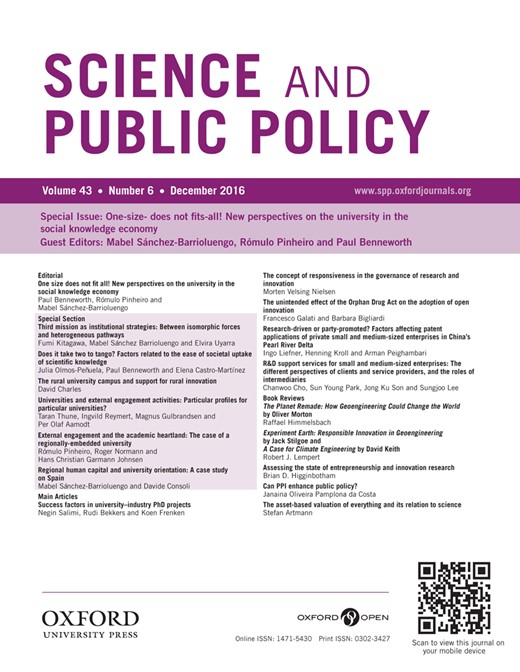-
Views
-
Cite
Cite
Morten Velsing Nielsen, The concept of responsiveness in the governance of research and innovation, Science and Public Policy, Volume 43, Issue 6, December 2016, Pages 831–839, https://doi.org/10.1093/scipol/scv078
Close - Share Icon Share
Abstract
Responsiveness has become a central concept in the increasing debate on responsible research and innovation (RRI), which aims to define new objectives for research and innovation (R&I) governance. This article aims to elaborate on the different understandings of responsiveness as an input to the discussions on how we create R&I governance that is responsive and therefore better able to address current and future societal challenges. This is done by analysing how the literature on R&I governance describes the role of responsiveness in three aspects of governance: defining objectives, setting process requirements and understanding drivers. On the basis of the analysis I develop six propositions for the role of responsiveness in governance, which are defined and unfolded. Together they show a complex picture of the understandings of responsiveness and the ways in which the concept can contribute to the operationalisation of RRI and the work on R&I governance.



